Summer 2025 'almost certain' to be the hottest in the UK on record after blazing 34.7C heatwaves
A long spell of above–average temperatures including a stonking 34.7C heatwave means this summer will 'almost certainly' be the UK's warmest on record, according to new figures from the Met Office.
The country would have to see several days of below–average temperatures between now and the end of the month for 2025 to miss out on the top spot.
Such a scenario is not suggested by the latest forecast – and with less than a week of August to go, 2025 looks set to be a sweltering record.
The mean average temperature for the season stands at 16.13C, based on data up to August 25.
This is almost half a degree higher than the existing summer record of 15.76C, which was set in 2018.
'Unless temperatures are around four degrees below average for the rest of August – which the forecast does not suggest – it looks like the current record will be exceeded,' Met Office scientist Emily Carlisle said.
'Of course, there are still a few days left of meteorological summer to go but it's very unlikely anything will stop summer 2025 from being the warmest on record.'
If this season is confirmed as setting a new high for average temperature, it will mean all of the UK's top five warmest summers will have occurred since the year 2000. Met Office temperature data for the UK began in 1884.
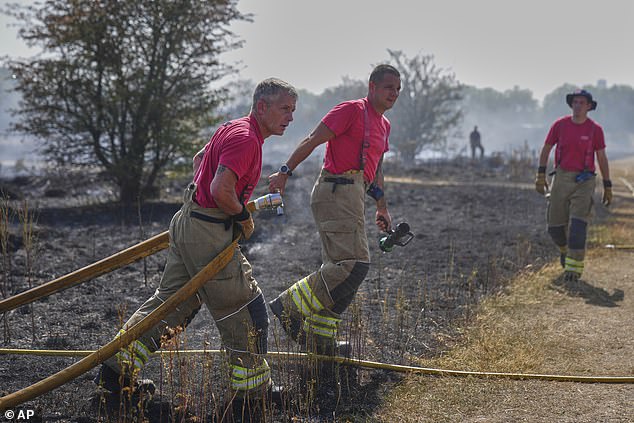
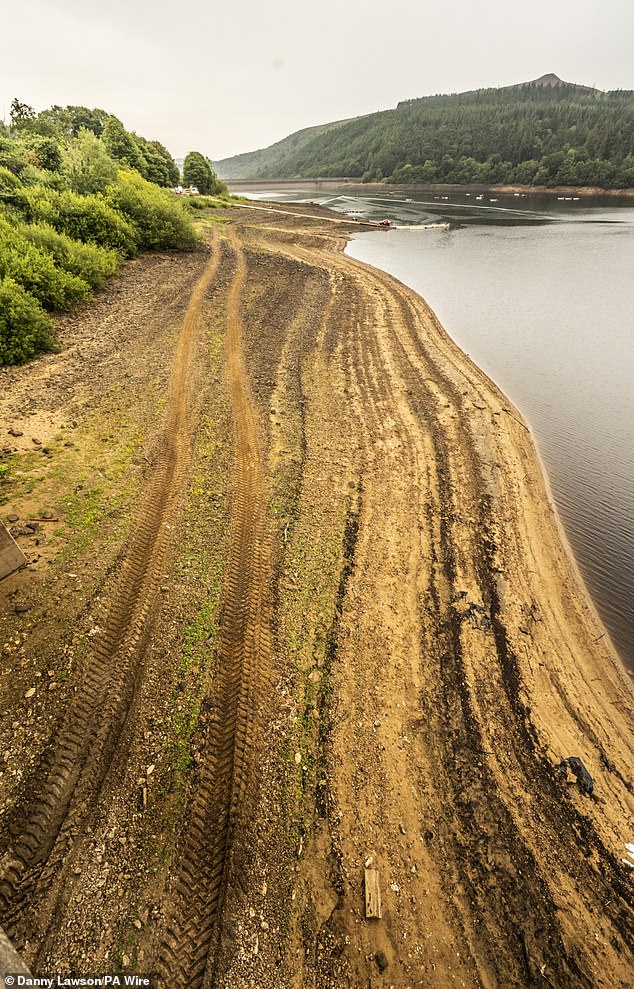

Summer 2025 stands out because of the four scorching heatwaves to hit in recent months, all of which saw temperatures climb above 30C.
None reached the ferocity of the heatwave in July 2022, when an all-time daily high of 40.3C was reached.
This year's spells of intense heat were also relatively short–lived and did not persist for as long as in the infamous summer of 1976, when multiple locations across England endured heatwave–like conditions lasting more than two weeks.
Temperatures peaked above 32C on 16 days during the summer of 1976, compared with nine days in 2025.
The main reason this summer is on course to outrank 1976 and all others in terms of overall average temperature is the 'consistency of the warmth', the Met Office added.
This has been caused by a combination of factors: dry ground, thanks to extremely low rainfall in the spring; persistent high–pressure weather systems; and unusually warm seas around the UK.
These conditions have created an environment where 'heat builds quickly and lingers'.
In addition, climate change continues to play a role, with the UK warming at a rate of approximately 0.25C per decade.
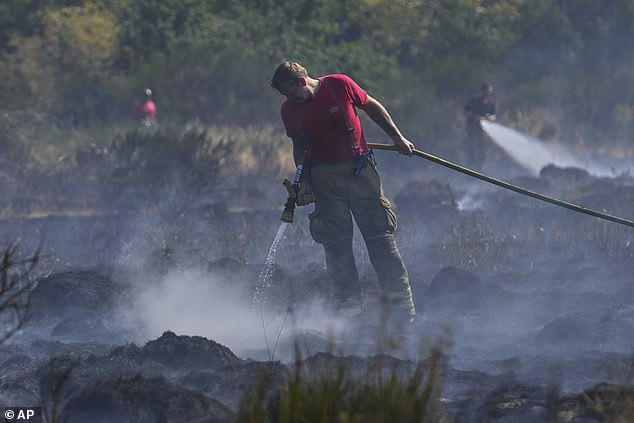

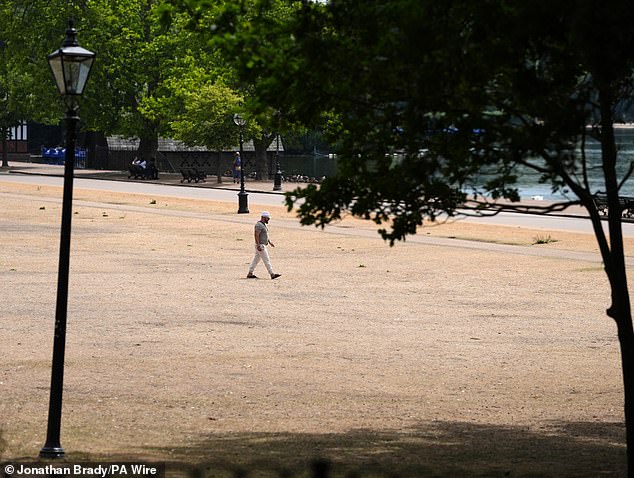
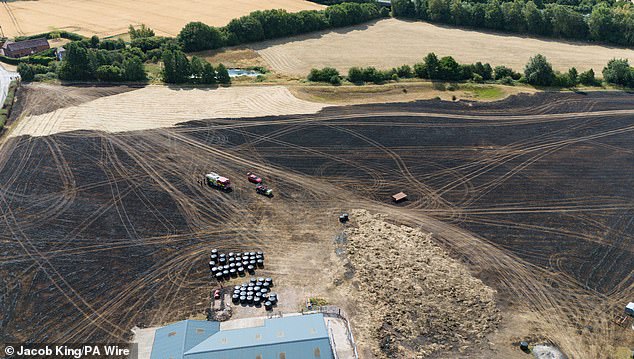
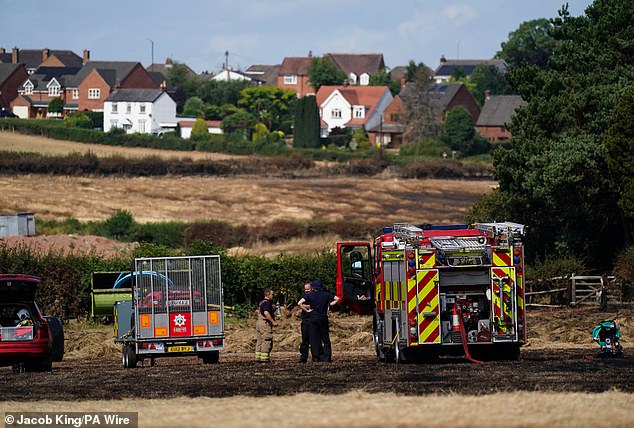
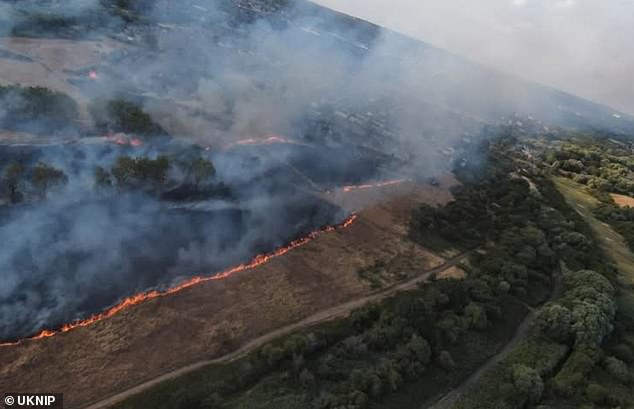
The changing climate has wreaked havoc among the farming industry, too, with recent expert analysis suggesting that this year's harvest could be Britain's fifth worst since records began in 1984.
The extremely dry spring caused droughts across much of the UK, affecting the growth of crops such as wheat and oats, which farmers are now harvesting.
The low crop yield follows the third worst harvest on record last year, which was due to extreme rainfall worsened by climate change.
Tom Lancaster, Energy and Climate Intelligence Unit (ECIU) farming analyst, said last week that farming in a changing climate has 'huge implications for our farmers, food production and UK food security'.
He added: 'Farmers need more and better support to adapt to these extremes. There is now a real urgency to ensure that support to invest in healthier soils and other green farming measures that can boost resilience is once again made available.'
Due to the droughts this year, farmers have also been struggling to grow field vegetables, such as broccoli and cauliflower, and feed cattle and sheep.
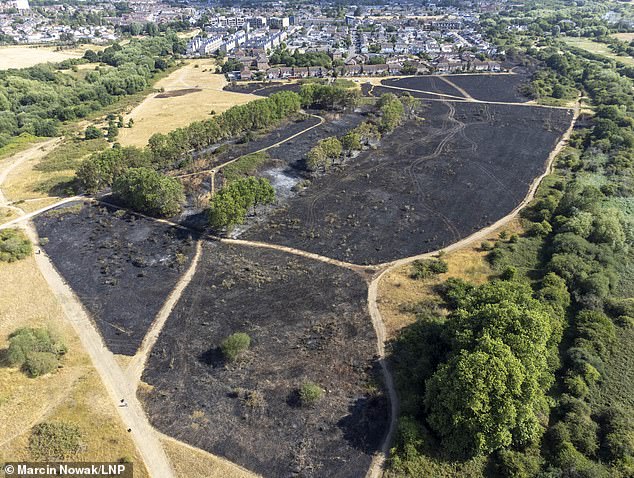

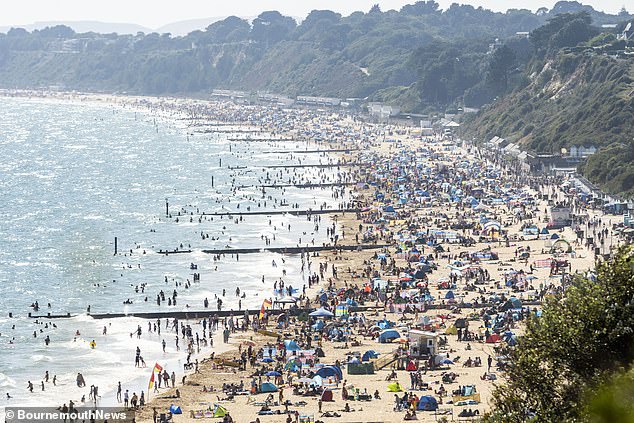

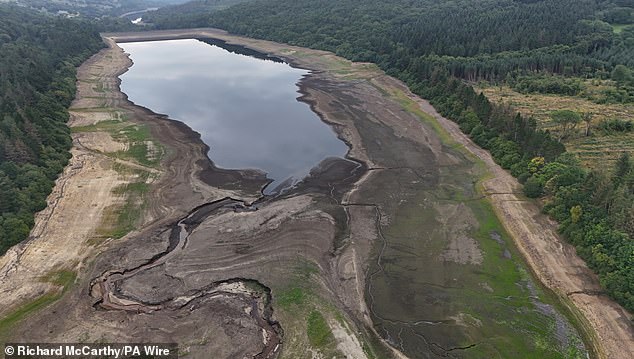
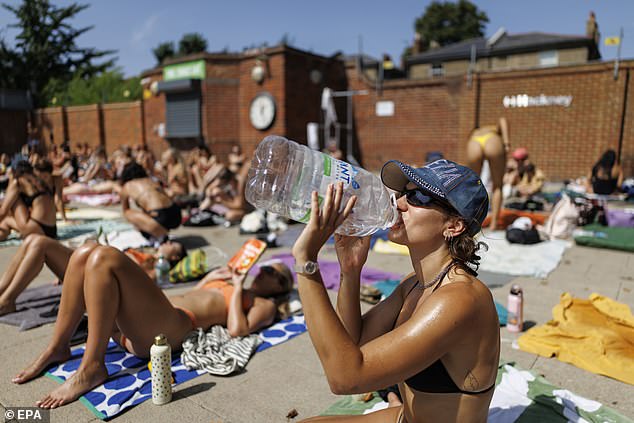
Britain being so parched also brought forward a swathe of hosepipe bans as the Environment Agency called on Britons to 'play their part' and use less water to 'help reduce the pressure on our water environment'.
Heavy rainfall and storms had 'helped mask' that July this year was the fifth warmest on record, the National Drought Group said earlier this month.
Water minister Emma Hardy said after this month's National Drought Group meeting that 'the Government is urgently stepping up its response to ensure we are successfully managing the impacts of ongoing dry weather'.
'Water companies must now take action to follow their drought plans - I will hold them to account if they delay,' she said.
'We face a growing water shortage in the next decade. That's why we are pushing ahead with root and branch reform under our Plan for Change, which includes £104 billion of private investment to build nine reservoirs and new pipes to cut leaks.'
Read more- Could the UK's record-shattering spring heatwave pave the way for a blazing, drought-stricken summer?
- Will Britain, enduring its fourth burning heatwave, make 2023 the hottest year on record with 79 scorching days above 20°C?
- Is the UK bracing for an unprecedented drought crisis as Thames Water declares a devastating ban amidst the warmest June ever recorded?
- Could this sizzling summer scorch the UK with an unprecedented heatwave, doubling the risk of blazing temperatures and threatening droughts due to climate impact?
- Could the UK face unprecedented drought as this spring becomes the warmest and driest on record in over 50 years?
Post a Comment for "Summer 2025 'almost certain' to be the hottest in the UK on record after blazing 34.7C heatwaves"